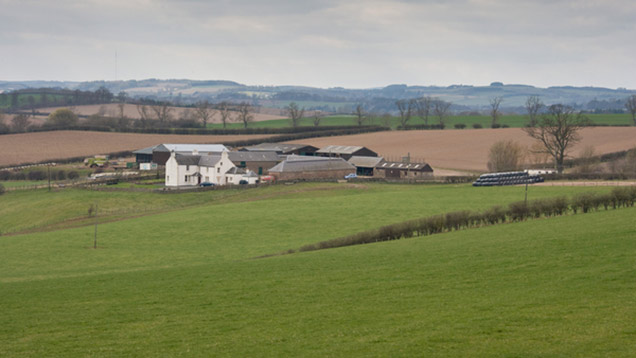Follow the rules on rent rises, TFA tells landlords
 ©Tim Scrivener
©Tim Scrivener Landlords and their agents need to stick to the rules in dealing with farm tenants, warns the Tenant Farmers Association.
Chairman Steven Wyrill used his AGM speech on Wednesday (4 March) to repeat allegations of inappropriate tactics used to pressurise tenants into agreeing increases.
“In the prevailing economics of agriculture there is no justification for farm rent increases on traditional tenancies where rents were last reviewed three years ago,” he said.
See also: Scots government proposes rules to help tenants
The bad practice included using the outcome of Scottish agricultural tenancy legal cases to argue that FBT rents were comparable with those under the 1986 act, he said. Sharp practice also included the treatment of farmhouse values.
However, there had been a number of situations where landlords had backed off from rent increases and in many cases had served new rent review notices for discussions to take place in the following year.
Standstills were the order of the day for AHA rents reviewed in 2014.
Some increases had been agreed but these had mainly been where the rent had not been reviewed for some time or where the 2011 rent was below what might have otherwise been achieved at the time, said Mr Wyrill.
FBT rents, however, were still a major concern. “While there has been a notable reduction in the number of people tendering for holdings and land at unsustainable levels of rent, it only takes one or two individuals in each case to over-egg the pudding,” said Mr Wyrill.
The AGM also heard that there was evidence of the Crown Estate taking a much more hard-nosed approach, also that it had decided against having a formal meeting with the TFA for the first time in at least 15 years.
Ken Jones, director of the Crown Estate’s rural and coastal portfolio, said that the estate valued its relationship with the TFA and had met with it on a number of occasions this year.
The estate was a commercial business, tasked by Parliament with generating returns for the benefit of the public finances.
“Our responsibility to good management does not mean offering below-market deals to tenants but ensuring that the land and property we invest in and manage are sustainably worked, developed and enjoyed to deliver best value over the long term.
“Ultimately it’s in our interests for tenant farmers to do well so that profitable ‘win: win’ solutions can be found and strong, sustainable agricultural businesses built.
“To this end we will continue to develop productive relationships with best-in-class tenant farmers who can adapt and innovate, and are committed to the long-term sustainability of the land.”
